NEW: We Made the List: America's Top 100 Most Loved Placed to Work
Purpose-Driven Development: A Proven Model for Land Stewardship
August 25, 2025
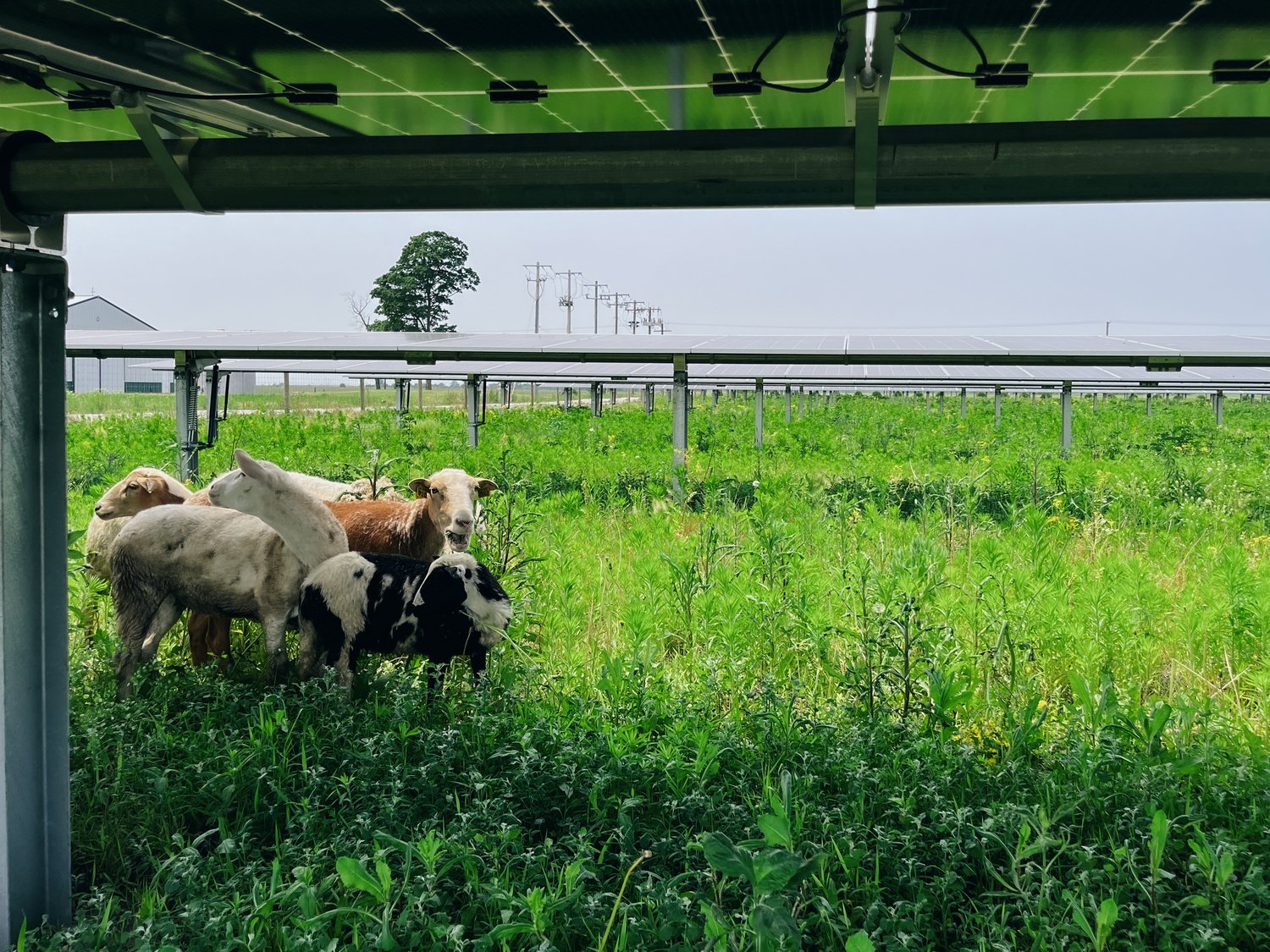
Pivot Energy’s Land-First Approach to Solar Development
Pivot Energy was recognized as Solar Power World’s 2025 Top Developer in Colorado, recognizing our commitment to building a more sustainable and equitable energy system. For us, impactful solar development starts with how we view the land: as a vitally important agricultural, economic, and cultural resource. So, Pivot develops each new community solar site with the shared goals of the landowner, the community, and the local environment.
To protect U.S. land and preserve rural landscapes, we embed dual-use practices on 100% of qualified sites, prioritizing soil health, homegrown energy generation, and continued agricultural production. This purpose-driven approach to project development is anchored in our unique three-pillar approach to land stewardship. At the national level, we believe solar plays a critical role in strengthening our grid. At the local level, we work to enhance local ecosystems and build strong partnerships in every community we build in. Our land stewardship approach has a proven track record of setting U.S. communities up for long-term success.
Livestock Grazing
Pivot incorporates livestock grazing into our sustainable land management strategy by partnering with local farmers and ranchers. The mechanical vegetation management equipment that many solar farms rely on burns fossil fuels, disrupts soil structure and microhabitats, and requires significant manual effort and on-site presence. Instead, Pivot allows animals like sheep to do what they do best – graze! This approach, often referred to as solar grazing, controls plant growth naturally while delivering many meaningful benefits for landowners, grazers, and communities:
Ecological
- Eliminates the direct fossil fuel emissions associated with mechanical mowing
- Natural soil fertilization from nutrient-rich animal droppings
- More successful vegetation establishment as the pressure from animal hooves works seeds deeper into the soil
Operational
- Reduced noise compared to traditional mowing equipment
- Streamlined vegetation management for landowners – Pivot handles all grazing operations
Economic
- Jobs created, new revenue streams unlocked, and reliable pasture provided for local grazers
- Reduced operation and maintenance (O&M) costs for landowners
- Increased availability of cost-competitive U.S.-sourced lamb products, decreasing reliance on imports
We aim to shepherd the benefits of solar farms to rural communities across the U.S., and we prioritize intentional, collaborative partnerships that help grow our impact. This year, Pivot partnered with the American Solar Grazing Association (ASGA) to offer sheep grazing certification training to local grazers, helping them confidently break into solar grazing.
.jpg?width=2000&height=1126&name=20250613_095835(0).jpg)
And on a personal level, we’ve built long-standing relationships with partners like Watson Farms, whose sheep graze several of our Illinois sites.
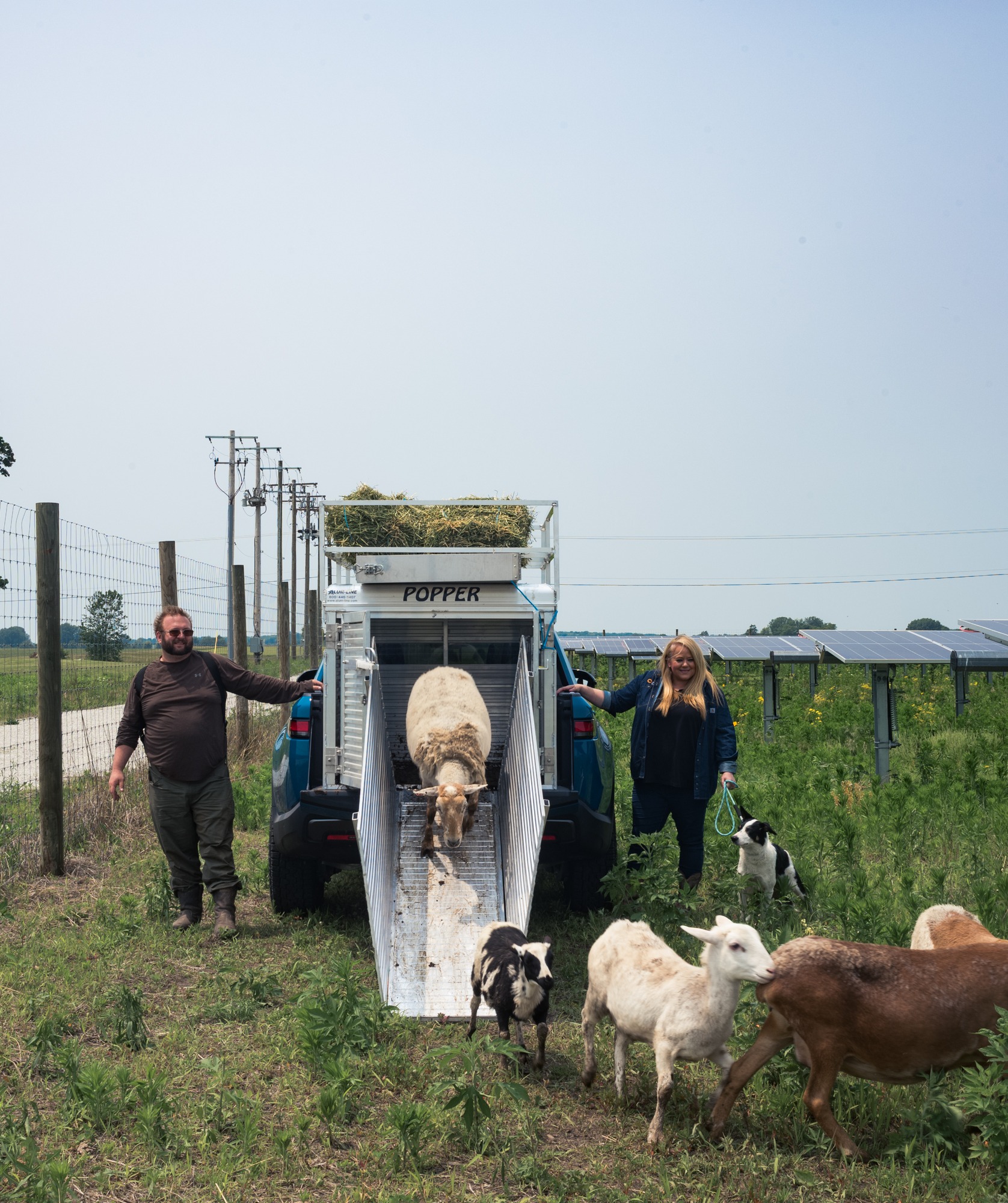

Our partnership with Pivot has allowed us to grow our grazing operation, support our family, and give back to our community. The Pivot team makes it easy to fit solar grazing into our existing operations. Our partnership continues to be a rewarding experience that benefits our business and our community."
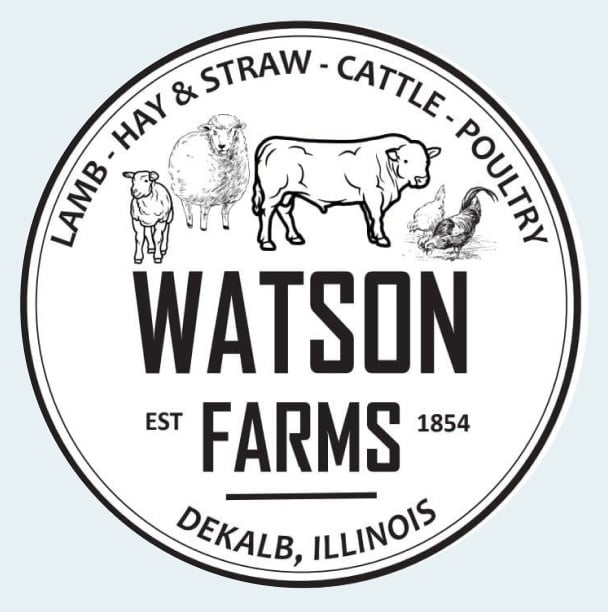
Habitat Enhancement
We begin every project with a focus on actively improving the land, laying the foundation for ecological restoration and sustainable land use that keeps land thriving for generations. Some of Pivot’s habitat enhancement techniques include:
-
Planting native grasses and wildflowers that attract pollinators and enhance soil composition, moisture level, and agricultural productivity.
-
Diligent compliance with all wildlife and wetland regulations in the area.
-
Registering 100% of our sites on DriftWatch to ensure there is no pesticide drift or application on our sites.
Our operations and maintenance and project development teams leverage Pivot’s core set of state-of-the-art best practices on every project. At the same time, we strive to expand the science and the market behind solar agrivoltaic development. We prioritize high-impact partnerships and research collaborations that advance the field and deliver practical benefits to stakeholders to continually maximize our ecological impact.
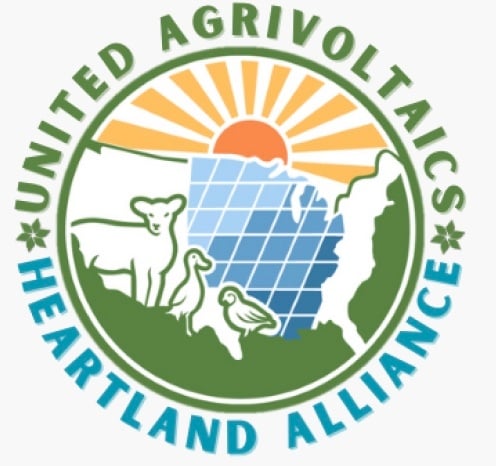
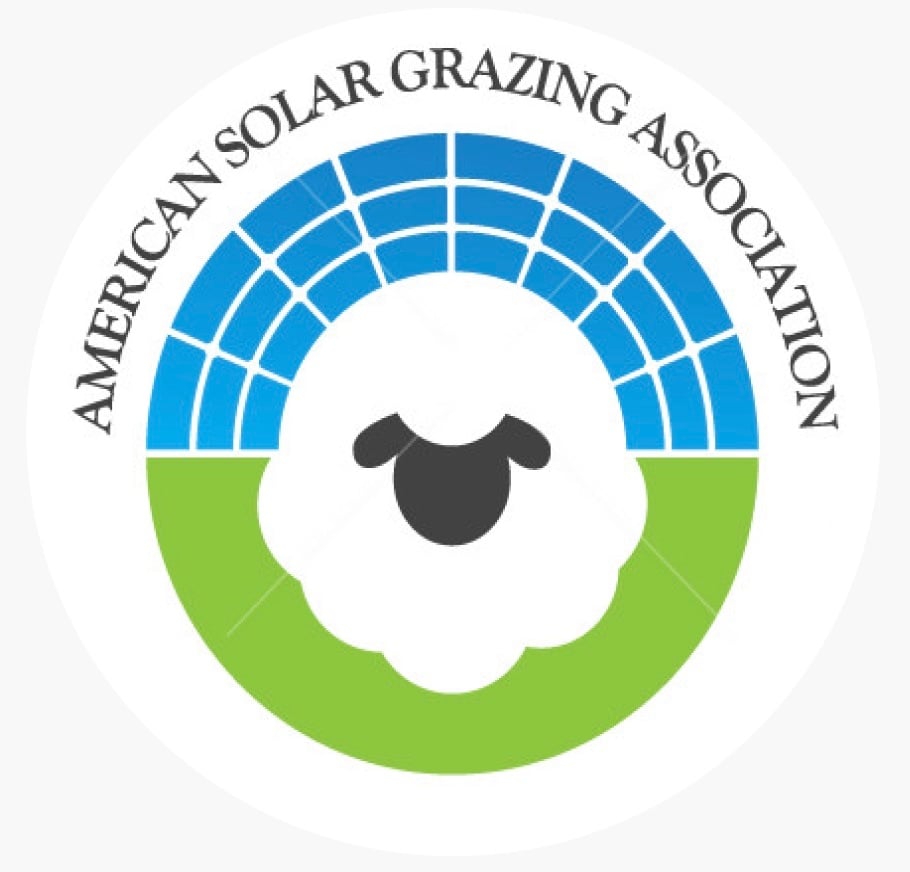
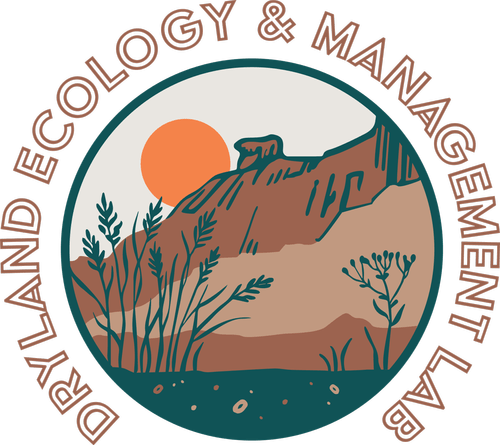
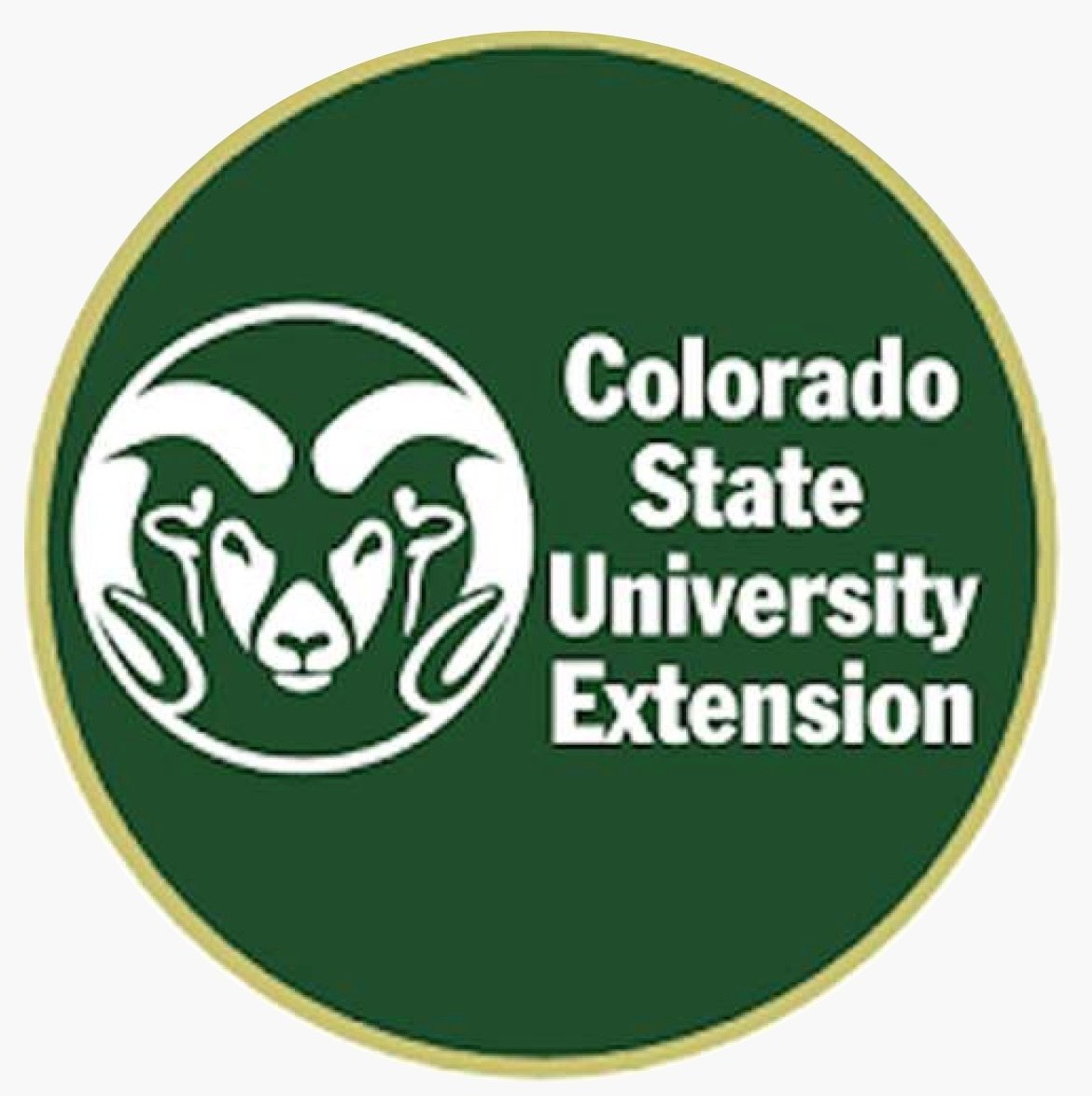
-
Our collaboration with United Agrivoltaics Heartland Alliance supports quail, butterfly, and native pollinator habitat enhancement.
-
We’ve partnered with Colorado State University (CSU) Dryland Ecology & Management Lab on a joint research proposal exploring how solar infrastructure can accelerate dryland restoration. Our $60,000 donation will fund a first-of-its-kind exploration of ecovoltaic synergies in the desert Southwest. The fieldwork will take place across three of Pivot’s solar projects in Mesa County, Colorado, beginning in Fall 2025.

We are excited to work with Pivot Energy and to embark on a variety of exciting new research opportunities at the nexus of sustainable energy production and restoration ecology. Pivot’s generous support, coupled with their belief and investment in the CSU Dryland Ecology and Management Lab, demonstrates the high value the organization places on creating measurable positive impacts on people, communities, and the planet and their effort toward working in collaboration to battle climate change."

Crop Production
The third phase of our land stewardship strategy is all about preserving agricultural production. We know community members have a passion for keeping farmland active, so we are constantly innovating new dual-harvesting solutions. . When developing solar farms on agricultural land, Pivot cultivates region-appropriate crops, maximizing both agricultural production and energy generation while respecting local heritages. Planting beneath solar panels offers ideal conditions for shade-tolerant crops like carrots, potatoes, and leafy greens. The panels also help retain soil moisture, reducing or even removing the need for crop irrigation – a major advantage in water-stressed areas.
If irrigation is still necessary to optimally support crop growth, Pivot works with partners to identify solutions that balance water efficiency, cost, and technical complexity. This often involves optimizing a mix of sprinkler systems, drip irrigation, and existing infrastructure.
With Pivot’s approach, pollinator plants and other agricultural commodities can also thrive on solar farms, including row crops, such as alfalfa, and honey.
Solar and agriculture co-location is a symbiotic relationship. While the panels work their magic to create a thriving microhabitat, crops regulate panel temperature to help maximize energy yield. This means more homegrown energy to power communities and, when scaled, a steady, secure energy supply to strengthen America’s energy security.
We’re actively working to expand our crop production capabilities in scale and diversity. In April of 2025, we launched planting prep at our largest U.S. solar+crop farm. This dual-use site is designed to demonstrate what’s possible when rural solar power and agriculture grow together on American soil, and we expect our first harvest in [Month]!
When Land Comes First, Everyone Benefits
Pivot’s land-first approach begins on-site, and its impact blossoms beyond the fence line. Our three-phase land stewardship model unlocks opportunities for landowners, grazers, local communities, and America’s energy future.
Learn more about how Pivot’s land stewardship practices benefit landowners and grazers by reading our blog here. Or, contact us to explore partnership opportunities.
Let's Chat
We would love to hear from you.
Whether you are ready to get a quote for one of our many services or just need some information, drop us a line.







